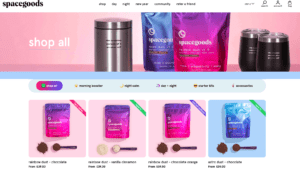
Scientifically Developed Meals Specifically Designed for Breast Cancer Survivors Given £500k Go-Ahead Grant
Innovate UK has supported the scientific development of meals designed specifically for breast cancer survivors with a near £500k grant.
One-in-seven women across the UK will develop breast cancer in their lifetime, with many feeling a sense of ‘abandonment’ once their treatment ends, making this a difficult and emotional time.
Field Doctor, the creators of science-led, dietitian-designed, chef-made frozen meals personalised to a person’s health and well-being and Perci Health – the world’s first virtual cancer survivorship clinic that gives people access to multidisciplinary cancer experts focused on managing the side-effects of treatment – have teamed up to create a food and care programme designed to enable healthy eating habits at this crucial time.
For many, the fear of cancer coming back is very real. It’s known that diet can play a key part in breast cancer recurrence and this study aims to develop a clinician-approved programme that will support survivors to eat well and help reduce the risk of recurrence.
Kelly McCabe, co-founder of Perci Health, said: “After a breast cancer diagnosis, many people can feel uncertain about what to eat. There’s a lot of conflicting information online about the impact of certain foods on breast cancer and this can lead to an increased anxiety about diet. At the same time, after treatment, people are looking to optimise their overall health and wellbeing and recover strength and energy levels, so the importance of consuming a recovery-supportive nutritious diet is heightened. ”
Alex Brooks, co-founder of Field Doctor, said: “We’ve all been affected by cancer, whether personally or someone close to us that we know, so we’re really focused to develop a range of meals to support cancer survivors and get the best outcomes. Our team of registered dietitians and chefs are creating a range of great tasting clinician-approved, patient-tested meals and snacks that deliver the specific nutrient profiles to help breast cancer survivors. The programme will be delivered weekly so that it’s convenient, with the meals ready to heat and eat, with the additional support and advice alongside.”
“We’re looking to see positive outcomes on a number of levels, firstly the ‘acceptance’ of the meal programme, that it’s easily integrated into the person’s routine. Secondly, to see if we can improve specific health metrics, like vitamin D levels, as it’s a micronutrient shown to support good outcomes, which we’ll track via blood markers.”
McCabe adds: “Alongside the meal range, we want to deliver improved confidence and knowledge around nutrition for people living with and beyond a breast cancer diagnosis. This will empower them to make healthy lifestyle choices in the long-term.
“Therefore, we’re also developing a breast-cancer specific educational programme providing detailed, evidence-based information about the links between diet and breast cancer. This will enable people to develop their own healthy meal plans at home, well beyond the six-week programme. Access to specialist dietitians for breast cancer patients is limited – our aim is to make this easily accessible for anyone who needs it.”
According to Harvard Medical School, six-weeks is a sufficient time to see transformative changes in individuals’ eating-habits, so Field Doctor’s meal programme has been designed as such to support immune system improvement, help reduce fatigue and contribute to healthy blood-pressure, cholesterol and glucose levels during this time period.
McCabe comments: “Over the last few years we’ve seen rapid improvements in survival rates for breast cancer. This is incredibly positive. However, after treatment many people continue to live with the long-term effects of their treatment which negatively impacts their quality of life. With the global breast cancer burden predicted to hit 3m women by 2040, support for survivors trying to return to normal life is essential, and this is just one step.”


